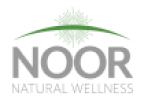What supplements should vegans take?
Feb 12, 2021
Different eating habits (or diets), provide different nutrients and also the lack thereof. If you predominantly eat meat, then your diet is filled with sufficient protein but may lack fiber if vegetables are not present. If you only eat junk foods and processed treats than your diet is filled with refined carbohydrates but will lack essential nutrients. Being a vegan has some amazing benefits, but like all diets, there may be a lack of certain nutrients; especially when specific foods that contain key nutrients, are not obtained. A wholesome diet consists of a balance of macronutrients and micronutrients, along with proper water intake and exercise. Vitamins are a great way to substitute key nutrients that may be lacking from a diet.
What supplements do vegans need?
In this article, we will focus on the vegan diet and will be discussing the best vegan supplements.
Protein
A complete protein consists of 20 amino acids which are abundant in meat and dairy. In non-meat foods, complete proteins are a little harder to come by but are still available in things like quinoa, spirulina, tofu, hemp seeds, and amaranth which contain all 20 amino acids. If these foods are lacking in the diet and other measures are not taken, then a vegan will start to see rapid weight loss and muscle wasting, which would indicate a protein deficiency. There are three ways a vegan can ensure they are getting sufficient protein in their diet. You can make a conscious effort to incorporate complete protein foods, you can combine any legume or grain (like brown rice and beans) to get your 20 amino acid combination, or you can supplement with a plant based protein powder, which is a quick, easy and filling way to top up on this essential macronutrient.
Vitamin B-12
B-12 is abundant in animal protein and can also be found in organic, unwashed produce in trace amounts. Although fortified plant-based milks, cereals, nutritional yeast and plant-based meats, contain small amounts of B12; deficiency is still prevalent amongst vegans. B-12 supports the brain and nervous system and its deficiency can cause dizziness, forgetfulness and pernicious anemia. The easiest way to obtain B-12 is through a vegan multivitamin, that will not only contain recommended daily amount of B-12, but other vitamins like D-3, which also seems to be lacking in vegan diets.
Vitamin D-3
If you live in a year-round sunshine state, then obtaining ample amounts of D-3 is as simple as going outside for 20 minutes a day. For my vegans who do not have this luxury, then being conscious of your vitamin D-3 intake is important. D-3 is a supplement vegan’s need and its presence in the body is vital to bone strength and function, mood balance and brain health. It is readily available in fortified beverages like orange juice and nut milks and is also available as mentioned above, in Noor’s vegan multivitamin.
Omega 3
Omega 3 is a nutrient that we all need, no matter your diet. Omega 3 must be obtained from external sources, hence the term; “essential” fatty acid. Omega 3 is a vitamin vegans’ need as it is responsible for boosting cognitive function, bone health, lowering bad cholesterol levels, and healthy hair, skin and nails (amongst many others things). Vegan food sources include raw nuts, avocados, hemp, chia and flaxseeds. Most Omega 3 supplements are derived from fish oil, but there are many companies who are now offering vegan Omega 3, derived from algae oil.
Iron
Iron is an important mineral found in cruciferous vegetables, nuts, seeds, dried fruits and nut milks. Iron is needed for energy metabolism and is also a crucial part in making red blood cells and carrying oxygen within the blood. Its deficiency can trigger a condition called anemia, which involves symptoms of extreme fatigue and tiredness. Significant amounts are lost during menstruation and needs are much higher for pregnant women. Vegans need to supplement with non-heme iron, which will come from a plant source vs heme iron, which is animal based. Sufficient protein and vitamin C helps to enhance irons absorption but one must be careful as iron does have toxicity levels. It should only be administered after deficiency has been diagnosed and in the presence of a licensed professional.

